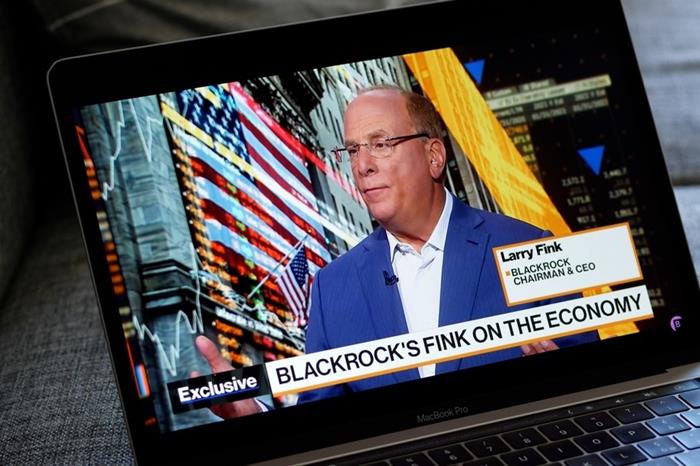Has the business world reached peak ESG? We may have done since the head of BlackRock, the world’s largest investment manager, said the term had become so toxic in the US that his organisation would cease to use it.
Larry Fink, chief executive of BlackRock, told attendees at the Aspen Idea Festival, that the company hadn’t changed its stance on ESG, but it would no longer use the acronym because it has become too politicised.
According to Reuters, Fink said: “I don’t use the word ESG any more, because it’s been entirely weaponised… by the far left and weaponised by the far right.”
However, Fink assured the audience that BlackRock stewardship staff would continue to talk to investee companies about cutting carbon emissions, social issues and governance. He said BlackRock would continue to focus on long-term investors.
It may not surprise many that Fink should take such a decision, as ESG and sustainability have been caught up in the increasingly polarised political discourse of the US. Many on the right call ESG “woke capitalism”.
More poignantly for Fink, Republican politicians have singled out BlackRock for their ire over sustainability. In September last year, the firm felt it had to defend its ESG position after the attorneys general of 18 states signed a joint letter accusing the fund manager of being in breach of its “fiduciary and legal obligations” alleging the asset manager had been pursuing social and environmental issues instead of maintaining a single focus on financial returns.
Letter to America
Close observers noted that BlackRock’s approach had changed when Fink’s annual letter to CEOs— published in March—failed to mention ESG, although previous letters had made it a core issue.
Fink faces disapproval for his retreat from the term. One critic, Alison Taylor, a professor at the Stern School of Business in New York, accuses Fink of failing to use his influence to examine the role of business in society “not on ‘ideological’ grounds, but because our current approach to negative externalities is dangerous, unsustainable and not going away”.
She adds: “The lack of moral courage from society’s most wealthy and powerful members in the face of political retaliation sure is fascinating—and depressing. I’m not calling the end of ESG. I am calling the end of the Fink era and its shallow, win-win rhetoric.”
Not everyone believes ESG is a useful acronym. Paul Barnett, founder of the Enlightened Enterprise Academy, believes boards should be focused on “good governance in the round”. He argues there are good reasons to stop using the term ESG but doubts they are the same as Fink’s.
“They are almost certainly due to the pressure from Republicans and the far right, which is having a financial impact on BlackRock,” says Barnett. “Doing the right things for the right reasons has never been more important, but there is ample reason to doubt that Larry Fink’s actions are virtuous, and every reason to believe they are not. Nothing would make me happier than to be proved wrong.”
Fink is not the only senior corporate leader to have responded to anti-ESG voices. Gary Retelny, chief executive of proxy adviser ISS, published an article in which he said his firm was “apolitical” and defended the use of ESG.
“Imposing heightened duties on investors, investment managers, and proxy advisers who consider ESG criteria and thwarting investors’ access to research and analysis that incorporate such criteria may further a political agenda, but they do not encourage fiduciary conduct.”
Missed a precedent
The politicisation of ESG goes back to before the election of Donald Trump, when concerns rose that he might attempt to derail its application in business.
Trump withdrew the US from the Paris Agreement on climate controls and then introduced new rules attempting to ban the use of ESG factors by proxy advisers.
The election of Joe Biden changed the Whitehouse view of ESG—but also intensified the clash with Republicans over the topic.
In August, Florida governor and presidential hopeful Ron DeSantis passed laws instructing the state’s pension scheme to prioritise the highest return on investment “without considering the ideological agenda of the environmental, social and corporate governance movement”.
DeSantis is also notorious for having removed Disney’s special administrative status over the entertainment giant’s support for LGBTQ rights and its opposition to the governor’s “Don’t say gay” laws for state schools.
There is every reason to assume Republicans will campaign on ESG in the next presidential election. While it may be a blunt tool, it is also useful for galvanising efforts to address the impact of business on people and the environment. The debate has some way to play out. For now it looks as if Larry Fink is attempting to reduce his orgnisation’s profile in the ongoing clash.





